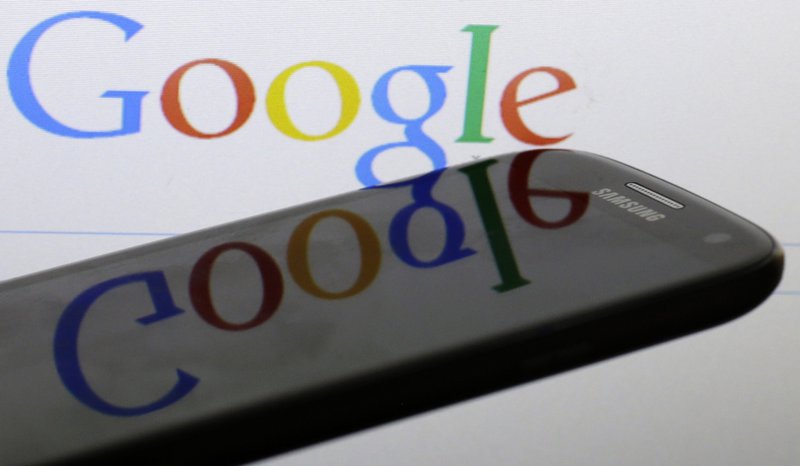Google gets into mobile
The internet titan has plans to introduce a new system using existing networks and designed to guarantee the fastest speeds possible for mobile users in each location
It was first announced a few weeks ago during the Mobile World Congress held in Barcelona, but only now have the details of the new mobile project begun to emerge. Internet giant Google has decided to enter the mobile market – widely identified as the future of digital technology – with a service that the company claims promises to provide faster connections and lower fees than the competition. The initiative is called Project Fi, Google's first incursion into the mobile sector. The company plans to begin rolling the service out in the US market, which is currently dominated by two heavy hitters, AT&T and Verizon. Between them, these two mobile operators control about two thirds of the consumer cake.
In short, Google has ambitions to become a virtual mobile operator, made possible thanks to an agreement with the operators Sprint and T-Mobile (the third and fourth largest telephone providers in the United States, with a 15% share of the market, respectively). To begin with, customer access to Project Fi will be by invitation only, and it will only be available to users of the Nexus 6 mobile device, the terminal made by Motorola for the California-based internet company. In this way, Google says it aspires to guarantee that the expected influx of new users can be managed more easily and progressively, allowing for more control and a better quality service.
One of the main challenges presented by the project, about which Google only recently began offering details on its blog, is allowing users to alternate their connection automatically and smoothly between the best network available at the time, whether it be LTE or Wi-fi.
“Project Fi will allow customers to take advantage of the best network available, wherever it may be found,” said once company source.
The mobile service is based on a technology capable of permanently determining which network is the quickest in any one area, whether it be a Wi-fi hotspot considered secure by Google or, either the Sprint or T-Mobile network, and then to connect automatically so that customers see no interruptions, cuts or changes in the quality of the service.
“When moving around, and therefore unable to continue using a Wi-fi hotspot, the customer will always remain connected at the highest possible speed offered by an available network,” says Google's technical department, which guarantees that changing connections will not interfere with such operations as making calls or video-conferencing. Another aspect about the service is that it will always take place over the 4G mobile network.
20-dollar basic package
Another advantage of Google's Project Fi is that it will be able to connect to other devices, such as tablets or laptops, and will have international coverage, which so far includes more than 120 countries. The basic package announced by Google will have a fixed price of 20 dollars a month and includes a flat rate for calls, unlimited SMS, international coverage and the possibility of tethering (using the mobile device as a router to provide internet access to other devices, such as a tablet). Other services will be available as personalised plans, depending on the customer's needs, costing 10 dollars for each extra gigabyte required. The main plus, though, is that Google commits itself to returning money to customers if they do not use their full allocation of data access. Thus, if a customer pays 30 dollars for access but in one month only uses 1.4 gigabytes of bandwidth, the company pledges to return the unused 16 dollars of access in the following month's bill.
Charging for unused bandwidth has become an important source of revenue for most operators. However, recently in the States, some providers are beginning to pass on unused gigabytes to the following month, a strategy also employed by some operators in Spain. In the US, competition in the mobile sector has become increasingly fierce in recent months, especially since Google announced its intention to join the fray. In response to the potential competition, some operators have already begun to offer new services to their customers.
Wireless connectivity
However, many analysts in the telecommunications sector believe that Google is not looking to put large rivals, such as AT&T and Verizon, out of business, but rather it wishes to draw attention to the sector and show that there are more interesting ways of providing wireless connectivity. In fact, in the past, Google has started similar initiatives, such as unveiling its own superfast internet network that uses fibre optics.
The direction taken by Google is unlikely to be followed immediately by other operators. The techno-giant can introduce measures like this because it has no need to invest in infrastructure, meaning that any financial risk is kept to a minimum and easily assumed by a company of its size. In contrast, conventional operators have had no option but to spend huge sums on their mobile networks, which means taking huge financial risks at the same time.
However, Google is not the only online business looking at making the leap into mobile. Facebook has also recently announced that it is testing a new mobile application that identifies caller numbers even when the person calling is not in the phone's address book. Such a service could allow users to better manage the calls they take, as well as being able to make calls freely over the social network.

